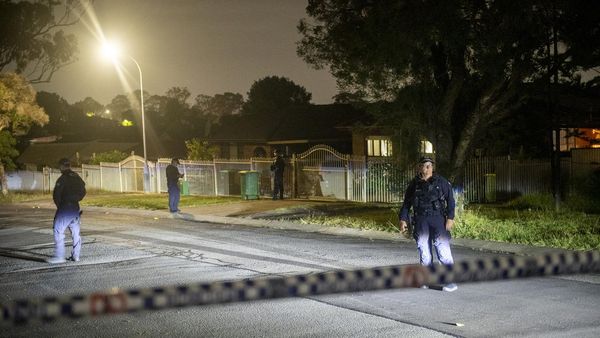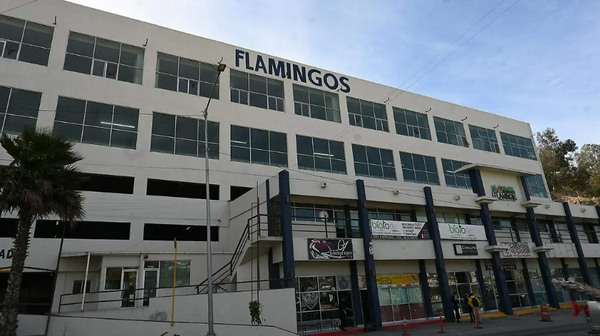
When Sir Keir Starmer recently shared a platform with Sir Tony Blair, the former prime minister congratulated the aspirant one for doing an “amazing job” by rescuing Labour from “the brink of extinction” and leading it to “the brink of government”. That compliment sounded all the more lavish to those who knew how agitated Sir Tony used to be about Labour’s prospects. Just two years ago, in the wake of Labour’s morale-crushing defeat in the Hartlepool byelection, some of the most ardent Blairites even discussed abandoning all hope in Labour by launching a new party to be led by Sir Tony. What sounds fantastical today was talked about quite seriously back then. It is a mark of the advances that Labour has made in the time since that Sir Tony now gives his benedictions and blessings to Sir Keir.
Most people assume he will win the general election, but we have just seen that the path to power is strewn with trip hazards and Labour stumbled over one of them in Uxbridge. Before I get to that, first the good news for Sir Keir’s party from the trio of byelections on Thursday. The victory in Selby and Ainsty was a stunner. The win in North Yorkshire was the biggest numerical Conservative majority overturned by Labour since 1945 and the second largest swing from the Tories to Labour in postwar history. It usually spells doom for the incumbents when they suffer a byelection defeat that colossal. This result was reminiscent of the stonking Labour byelection wins that the party clocked up in the 1990s when Sir Tony was leading the party towards his first landslide victory.
Sir Keir should also share the delight of the Lib Dems about their byelection triumph, the fourth in two years at the expense of the Tories. The victory in Somerton and Frome confirms that the Lib Dems are back in business in their historic stomping ground of the West Country, as well as menacing the Tories in “blue wall” seats in the south-east. Sir Ed Davey’s party will be encouraged to increase the number of Conservative parliamentary seats on its target list. The better the Lib Dems are at scalping Tories, the more likely it is that Sir Keir will lead the largest party in the next parliament. Another positive sign for progressive politics is that both these byelections demonstrated, as did the local elections in May, that explicit collaboration between the opposition parties isn’t required to get anti-Tory voters to mobilise behind the anti-Tory candidate who is best-placed to win. Voters worked out for themselves where to mark their ballots to maximise the punishment inflicted on the Conservatives. Mounting evidence of tactical voting is another echo of what occurred in the run-up to the demolition of the Tories in 1997.
The Labour setback – and this is a painful one which is causing recriminations – was falling short in Uxbridge and South Ruislip. Clinging on with a majority of less than 500 was a squeaky-bum result for the Tories, but it gave them a consolatory straw to cling on to, denied Sir Keir the double victory that he wanted and spared Rishi Sunak the triple whammy of defeats that he feared. “Hugely disappointing,” says one member of the shadow cabinet of the result in the outer London borough. “Immensely frustrating,” says another.
Sir Keir had to scrap his plans to do a victory lap in west London while the prime minister hurried to the seat to proclaim that this proved that a Tory defeat at the general election was “not a done deal”. It has given the Conservatives a scrap of hope and left Labour with some crucial lessons to learn.
Everyone agrees that Labour came unstuck in Uxbridge because the Tories successfully made a hot wedge issue of the ultra-low emission zone. The Ulez scheme imposes a fee on older and highly polluting vehicles, which is designed to get them off the road, and is being expanded from inner London to the capital’s outer boroughs. Some people are drawing lazy conclusions from the Uxbridge result. It is not right to say that this shows that a pro-environmental agenda will always be unpopular and Labour should start ditching its commitments to greening the economy. The campaign went so awry for Labour partly because the expansion of Ulez has been decreed, but is not yet a reality. The pre-introduction period is often the most contentious stage of any scheme, because a lot more people can be convinced they are going to be affected by the change than actually will be.
Tory campaign literature suggested that everyone in Uxbridge, not the minority with the dirtiest vehicles, would be paying £12.50 a day to drive. “We had people with a Tesla in the driveway saying it was outrageous that they would have to pay,” reports one Labour campaigner. Even though there were early warnings that the Tories would try to turn the byelection into a referendum on Ulez, Labour flailed around when it should have crafted a robust response. It could have argued the case for improving the air quality of London and the health of its citizens. “How on earth did we get to a place where a policy which saves hundreds of lives a year became a voter-loser?” asks one exasperated member of the shadow cabinet. They could have pointed to the opportunistic hypocrisy of the Tories who claim to be champions of clean air schemes for other cities. Rather than take on the Tory attack, the Labour candidate suggested that the Ulez expansion should be halted, a timorous response which essentially endorsed his opponent’s position. Sadiq Khan, the Labour mayor of the capital, was told he wasn’t welcome in the constituency. Sir Keir, not wanting to choose between the candidate and the mayor, sat on the fence while other senior frontbenchers havered and hedged. As a result, Labour marooned itself in the worst possible place: under ferocious Tory assault and without a coherent defence. “Their byelection machine was not so smart,” says a Lib Dem campaigner. “When the Tories come at you, you have to punch back and punch hard. They could have fought the Ulez thing.”
One moral here is that the way to sell environmentally friendly policies to voters is with carrots, not sticks. It was a blunder to fight that byelection without a plan to make the transition to cleaner vehicles affordable for voters struggling with the cost of living crisis. “With hindsight, we should have talked about a more generous car scrappage scheme,” says one shadow cabinet member. Another warning is that the Tories still have some life in them. They may look exhausted as a government, but they won’t relinquish power without a vicious fight and have some ruthless tricks up their sleeves when it comes to campaigning.
Labour needs to fully absorb this lesson before it is plunged into the intense heat of a general election campaign. Every policy that it plans to put before the electorate ought to be examined for potential vulnerabilities and thoroughly fireproofed against assault. Lines of defence need to be clear and firm because, as Uxbridge illustrated, Labour won’t see off Tory attacks with equivocations and ambiguity.
There’s another cause for some Labour disquiet. We know that public alienation from the Conservatives runs deep, but there is still not that much enthusiasm for Sir Keir’s party. In Selby, the Tory vote collapsed by more than 21,000. The Labour vote only rose by less than 3,000. It has become a cliche to say that Sir Keir has yet to “seal the deal” with Britain, but that doesn’t stop it being true.
This will add spice to the argument about where the party should strike the balance between reassuring voters that it can be trusted with government and enthusing them with its plans for power. A wrong answer is to say that Labour should try to be exciting by throwing caution to the winds. Sir Keir won’t win office if a lot of voters think his party is a risky proposition. An equally wrong answer is to say that Labour should have as few distinctive policies as possible for fear of exposing itself to Tory attack. Voters need to believe Labour will be different if they are to be persuaded that their families and their country will be better off for electing a Starmer government. Between here and election day, Labour has to convince people that it will be both a responsible government and one that delivers change. It is a tricky balancing act, but if you can’t ride two horses at once, you shouldn’t be in the circus.
• Andrew Rawnsley is Chief Political Commentator of the Observer







